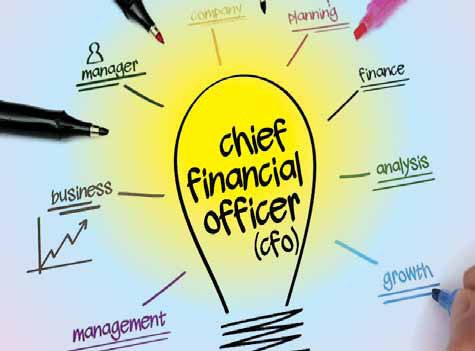Issue No.20 / December 16-31,2015

The role of a CFO has transformed from someone who was a mere accountant about two or three decades ago, to someone who strategically plans and executes business today, along with the CEO of the company
In the wake of the global economic crisis, India has certainly emerged as one of the best nations with some of the best corporate and accounting practices. Today,Indian companies are expanding at a very fast pace.In such times,the role of a CFO or a Chief Financial Officer too has metamorphosed from someone who was a mere accountant, about two or three decades ago,to someone who strategically plans and executes business, along with the CEO of the company.
Today, the role of a CFO is no longer restricted to an enabler for the finance function, but is accentuated by technology, be it cloud computing, or even mobile computing. The role of a CFO has become strategic and absolutely critical in today’s world. Most CFOs of large multinational companies are of the view that the role has become extremely challenging today, given the global economic factors that undergo frequent changes, especially after the 2008-09 economic crisis. Says Anil Patwardhan, Global Head Corporate Finance & Governance at KPIT Technologies, “Currency movements and global interest rate changes do impact margins domestically.Currency risk is an ongoing challenge most of the time. Company margins can get eroded if a CFO is not proactive enough in dealing with the crisis and taking suitable action at the right time. Most decisions have to be prompt and relooked at immediately for the next six months to a year.”
Today, the role of a CFO is no longer restricted to an enabler for the finance function, but is accentuated by technology, be it cloud computing, or even mobile computing.The role of a CFO has become strategic and absolutely critical in today’s world
CFOs also note that compliances too have become difficult today. “There are regular changes in sections of the Law and if you’ve missed any, it’s an issue. Company Law is very stringent. People are still gearing up to the changes that came about with the new Company Law in 2013. Maybe it will be easier after three to four years, because by then you would have understood the norms, rules and regulations,” says Animish Bagchi,a Chartered Accountant by profession, also Senior Vice President - Finance at EagleBurgmann Ltd. He is of the view that today’s CFO serves as the chief compliance officer and chief strategist, while also liaising with the investor community at large. In order to keep up with the changes in laws and regulations, CFOs will have to stream line their activities, and invest continuously in new technologies to fulfill their financial and accounting reporting functions. As companies expand domestically as well as internationally, CFOs will also have to adapt a more global mindset and may have to be located, more often than not, outside their native country.
The role of a CFO has become multifarious,as he is now someone who is constantly recasting the business model in line with capacity constraints, inventory, and managing costs in line with demand and supply projections. Ultimately, managing revenue and expenses to optimise financial performance is crucial. A CFO today is required to take higher-level decisions, which never happened a few years ago.With the business approach changing with the changing environment, CFOs do need to spend a lot of time managing the company finances. Explaining the business model and financials to both internal and external stakeholders is also an important task today.
At the same time, sharp focus on numbers and a strategic vision is extremely important for the CFO of any company. With businesses undergoing transformation, CFOs believe that finance will have to aid this transformation through the use of future generation processes,alternative delivery models, technology, and the creation of new skills in people and leadership capabilities.
Meanwhile, talking about hiring employees for the role, most of the companies today prefer hiring students from B-schools who have a master’s degree in finance, or someone who is a Chartered Accountant, than someone who is only a graduate.
By Mahalakshmi Hariharan